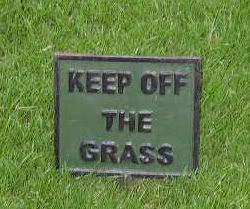Well, today has started off to be one of my "weird days." As some know, occasionally I can have shaky mornings. It has to do with my body gobbling up too much glucose while I sleep. Consequently, sometimes when I wake up I feel disoriented and woozy until I can get everything evened out. This morning was one of those mornings. Luckily, I didn't have anywhere I desperately needed to be, so I was able to eat something and then go back to sleep for a few hours until things settled down. I know, everyone's jealous, it sounds great to be me. ;)
During the course of my early morning nap, I had some very interesting dreams. I know some people either can't remember their dreams or think dreams are just free entertainment our mind gives us each night, but I tend to probe a bit deeper than that. I love dreams. From my perspective they can reveal some interesting facets of ourselves that we either ignore or consciously supress in our waking lives. Of course, dreams can also just be crazy flights of fancy. However, like in real life, I can usually tell the difference between something fun and something real. Anyway, this morning's dreams were real, so I thought I would mention one.
The most memorable dream is one where I started out in my room here. I was tired and didn't know what I was supposed to be doing that day. So, I gathered up some books and decided to get on a bus. Of course, the bus I wound up boarding was a
TriMet bus. So somewhere between me walking out the door and reaching High Street, I actually got on a plane and flew to Portland. Strange, but it seemed completely normal to me. I climbed on the bus and grabbed a seat. The bus was almost empty and it was bouncing along the road. Due to my existing tiredness and the rythmic bouncing, I soon feel asleep with my head propped against the window. As the bus was pulling away from a stop at
OHSU , I woke up completely disoriented, glanced blearily at my watch, and realized I had been sleeping on the bus for over three hours. I immediately panicked, pulled the stop signal, and grabbed my books. The bus was approaching the last stop at OHSU, so I stood up to get off, thinking that I could go read the books at the university library (Jenn, if you're reading this, you did cross my mind in the dream, but you were already at residency in Iowa, so I couldn't come see you at the hospital.). As I stood up, I realized my eyesight was getting very dim, and my body was still very disoriented. I kind of stumbled my way to the front of the bus, half falling on people as I made my way. By the time I reached the front, I couldn't see anything. I was totally confused and the bus driver was worried, but he seemed more concerned with getting me off the bus safely than helping me. This probably had to do with him wanting to keep the bus on schedule. Anyway, he helped me down the stairs and left me confused, scared, and sightless on the outskirts of the OHSU campus.
Luckily, there was one person at the stop when I got off. I think he was a resident or a young doctor, because he went immediately into "medical help" mode when he saw me. I kept trying to tell him I was fine, and that I just needed to lie down for a bit and then everything would be ok. He seemed to have serious doubts about that. He helped me lie down on the grass and as he was starting to check all of my vital signs, I began to drift in and out of conciousness. At the same time my eyesight would return for a moment, but then go dark again. I remember feeling like his stress about my condition was sort of hovering above me, and I was really thankful for his help. Still, I decided the best thing I could do was just let go and trust that things would be alright. The last thing I remember is tilting my head off to the left and seeing his leg shaking as he worked to try and help me, a complete stranger. I felt so thankful for his help, since it meant I could release me own fear. (Again, Jenn, what you do is such a gift to other people!) I think it was a good dream about the process of learning to let go, have trust in other people, and faith that life really will work out the way it is supposed to. It was a complex, but nice way to re-begin my day.
Speaking of my day, and books, and libraries, I do need to get some work done. Hi Ho, Hi Ho, it's off to the
Bod I go...
Quote of the Day:
"He only gets like this when he wants money or love. Lame!" - Beanie ;)





